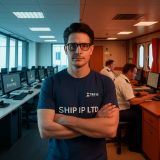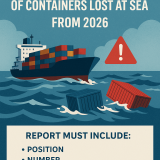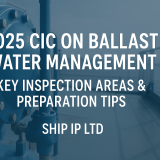With greater public pressure to cut maritime and port emissions, the European Commission has launched its EU sustainable finance package, enabling tug-related companies and others across the maritime logistics sector to apply for funding to apply green technologies.
Tug owners can use this finance to purchase and operate vessels that comply with specific emissions limits to help EU economies reach the EU’s 2050 decarbonisation goals. Funding may be applied to tugs with hybrid propulsion, batteries and IMO Tier III emissions compliance or by ports introducing emissions reduction technologies.
The main package’s measures are the EU Taxonomy Climate Delegated Act and the Corporate Sustainability Reporting Directive proposal. The Taxonomy Climate Delegated Act complements the Taxonomy Regulation, outlining a set of technical criteria which establishes the economic activities that most contribute to meeting the EU’s environmental objectives.
The criteria must be science-based, technology neutral and ensure the broadest possible range of critical infrastructure is adopted to limit climate change. The EC has committed to regularly update this document and make the necessary clarifications to ensure the highest degree of legal coherence.
The EU Taxonomy’s objective is to provide incentives and legal clarity to investors financing green and transition projects, encouraging companies to develop or implement new projects that are qualified as green.
The Delegated Act will be formally adopted at the end of May and will apply from 1 January 2022.
The EC’s Corporate Sustainability Reporting Directive proposal is a legal initiative extending the obligation of presenting sustainability reports to all companies with more than 500 workers, and all companies, including those involved in maritime, listed on regulated markets.
In Q2 2021, the European Council and Parliament reached an agreement on EU climate law, which sets into law the goal of a climate-neutral EU by 2050. It also sets an objective to collectively reduce net greenhouse-gas emissions to at least 55% by 2030 compared with 1990 levels.
European institutions have agreed on a series of new decisions that complement the EU Commission’s legislative proposal, for example establishing a European scientific advisory board on climate change.
This board will be tasked with providing scientific advice and reporting on EU measures, climate targets and indicative greenhouse-gas budgets and their coherence with the European climate law and the EU’s international commitments under the Paris Agreement.
The EC has agreed to propose an intermediate climate target for 2040 and set an aspirational goal for the EU to achieve negative emissions after 2050.
In another environmental move, the EU Parliament’s plenary adopted a resolution regarding technical and operational measures for more efficient and cleaner maritime transport.
This document outlined the EU parliament’s position concerning the shipping sector´s decarbonisation debates. It proposes a series of goals and actions the EU Commission and Council can take into consideration when defining the next strategies and policies affecting the maritime transportation industry.
This resolution outlines a series of policy initiatives to achieve the transition towards zero-emissions waterborne transport by 2050 including establishing clean energy incentive schemes that consider the role of transitional technologies.
The resolution also calls on the EU Commission to draw up a strategy on zero-emissions ports and to promote a modal shift towards shortsea shipping.
In the UK, the government announced shipping emissions would be included in its carbon budget for the first time. This sixth carbon budget will limit the amount of greenhouse gases emitted from 2033 to 2037. The new targets are expected to be approved by the UK Parliament in June 2021.
Maritime logistics supply chain disruption
Meanwhile, the European Tugowners Association (ETA) has partnered with eight other European logistics associations calling on the EC to investigate the practices of container carriers over the last year. If their request is successful, the EC will review how shipping lines’ practices have disrupted maritime logistics supply chains.
ETA says these changing practices have “generated an all-time low schedule reliability, which has been creating congestion and other issues in many port operations.”
For example, changes in practices have led to allocating capacity and hauling containers back to Asia empty to collect better freight rates for import freight.
“These types of practices have provoked worsening levels of capacity availability and service quality, affecting the whole logistics chain,” says ETA in its latest newsletter. This impacts shippers, forwarders, barge and inland terminal operators and port service providers.
The letter highlights the Consortia Block Exemption Regulation (CBER), which ETA says has failed to prevent disruption in the maritime logistics and hinterland logistics chain.
CBER is an exemption that container shippers have to European competition rules banning company consortia and collective negotiation.
ETA says this “extension to CBER has not achieved the results expected when the application of this legislation was renewed last year”.
The nine associations state that customers have “not benefited from the extension of the CBER in view of the evolution of the freight rates and the simultaneous fall-back in frequency, reliability and connectivity”.
They have therefore asked the EC for a factual inquiry about developments during 2020 and Q1 2021 to establish the real causes of the disruption in the maritime logistics and hinterland logistics chain.
Source: rivieramm





